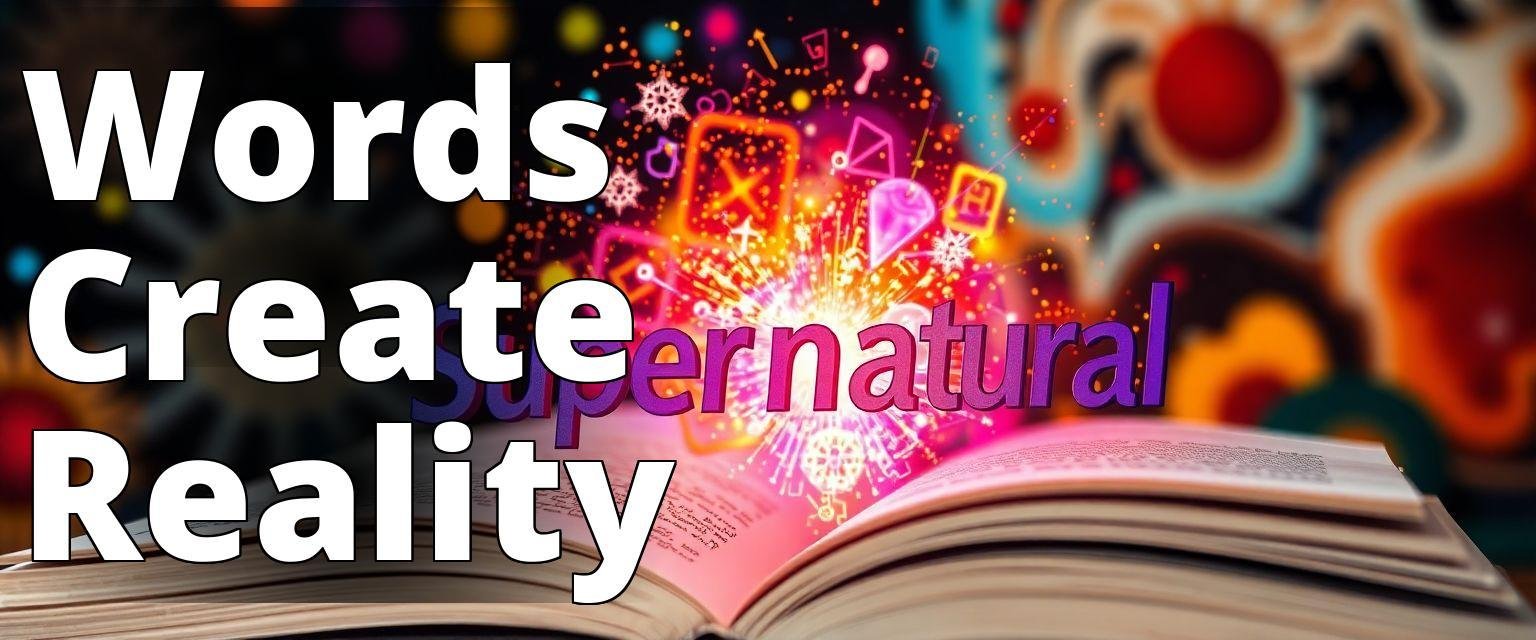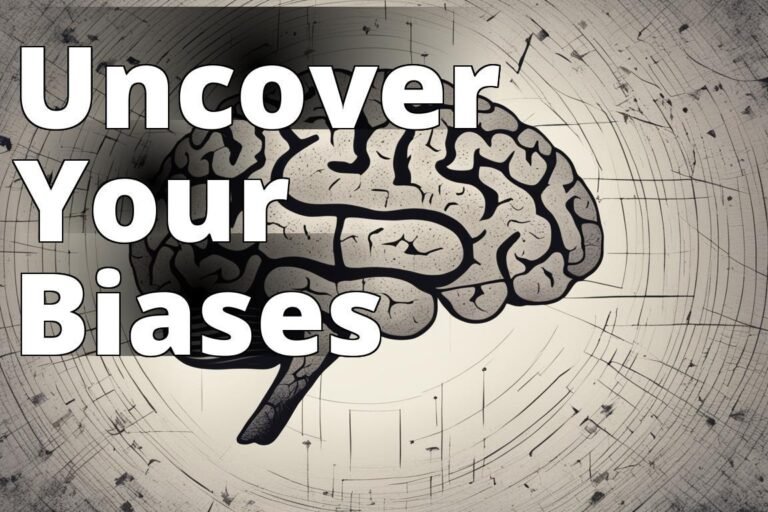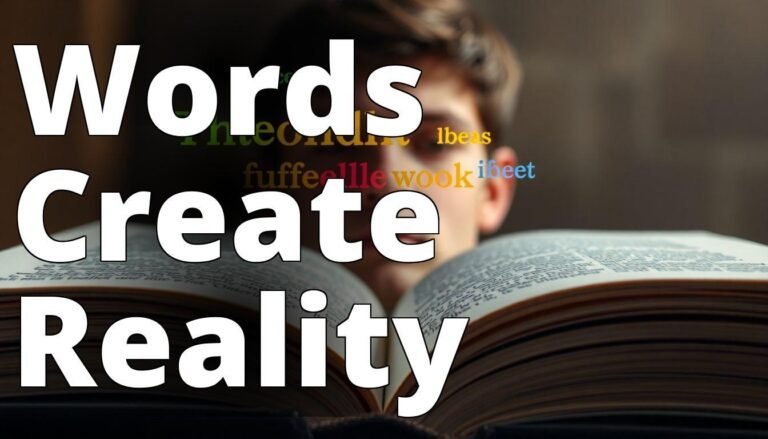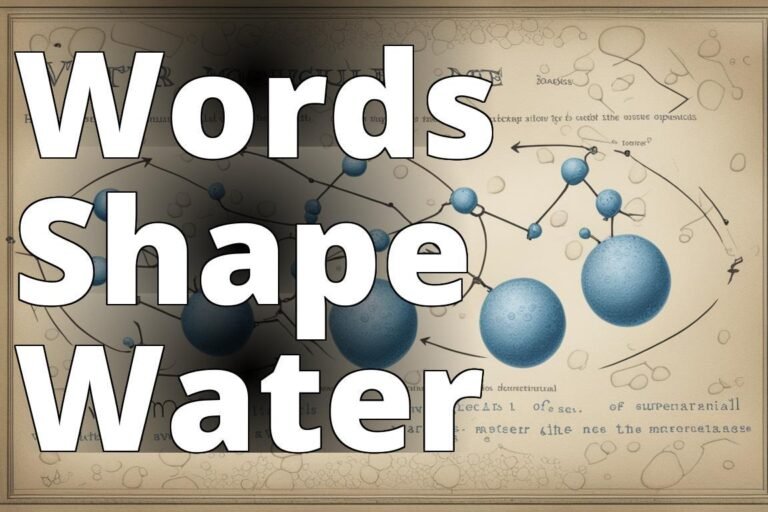How Words Shape Our Reality
Have you ever wondered how the words we choose shape our understanding of the world? It’s intriguing to think that the simple act of speaking or writing can fundamentally alter our perception of reality. The documentary “How Words Get In” delves into this phenomenon, offering a profound exploration of language’s impact on our lives. In this piece, we’ll unravel the intricate ways in which words wield power over our thoughts, emotions, and even our physical realities.

Understanding Word Power
Discover how language influences our perception and experience of reality.
– Words can create emotional responses, altering our feelings and perspectives about situations.
– Language shapes our thoughts and beliefs, ultimately influencing our actions and interactions.
– The way we communicate can either limit or expand our understanding of the world around us.
How Words Shape Our Reality
Words are more than mere symbols or sounds; they are the building blocks of our reality. This concept might seem abstract, but consider this: every thought, every conversation, and every written word contributes to how we interpret and navigate the world. Language influences everything from the stories we tell ourselves to the way we interact with others.
The Cognitive Science Behind Language
Cognitive scientists have long studied the relationship between language and thought. A famous hypothesis, known as the Sapir-Whorf hypothesis, suggests that the structure of a language affects its speakers’ cognition and worldview. The hypothesis posits that speakers of different languages perceive the world differently, influenced by their linguistic structures. For instance, some languages have multiple words for what English speakers simply call “snow,” leading their speakers to perceive snow with more nuance.
One compelling study supporting this hypothesis examined the perception of color. Researchers found that speakers of languages with numerous terms for different shades of blue could distinguish these shades more quickly than those whose languages lacked such distinctions. This suggests that language can literally shape how we see the world.
Insider Tip: “The words you choose not only reflect your reality but actively shape it. Be mindful of your language to transform your perspective.” – Dr. Elise Cameron, Cognitive Scientist
Learn more about language and cognition from this study.
Language and Emotion
Words also have a profound impact on our emotions. Consider how different words can evoke different feelings. The phrase “I’m sorry” can diffuse anger, while “I love you” can evoke warmth and happiness. This emotional influence is why positive affirmations are so powerfulthey use language to condition the mind for positivity and success.
A study conducted by the University of Chicago found that people who verbalize their emotions, especially in challenging situations, can better manage their feelings. The act of naming an emotion reduces its intensity, demonstrating that words can alter emotional experience.

The Role of Language in Shaping Identity
Language is a critical component of identity. It reflects our culture, our community, and our personal experiences. The words we use can signal our belonging to certain groups or our divergence from them. This is evident in dialects and slangs unique to regions or social groups.
For instance, African American Vernacular English (AAVE) is more than just a dialect; it’s a cultural identity marker. For many, speaking AAVE signifies membership in a community, with shared history and experiences. Similarly, bilingual individuals often switch between languages to express different facets of their identity, a practice known as code-switching.
Thought-Provoking Question: How does the language you speak influence your sense of self and belonging?

Language as a Tool for Manipulation
While words can heal and connect, they can also deceive and manipulate. Politicians, marketers, and media outlets often use language strategically to influence public opinion and behavior. Through framing and rhetoric, language can be used to shape narratives and control perceptions.
Consider the use of euphemisms in political discourse. Terms like “collateral damage” mask the grim realities of war, making them more palatable to the public. Similarly, advertising often uses persuasive language to create desires and convince consumers to buy products they don’t necessarily need.
A study published in the Journal of Communication explored the impact of language framing on public attitudes. The research showed that how issues are presented in the media significantly influences public perception and policy support.

Insider Tip: “Always question the language used by those in power. Words can obscure truth just as easily as they can reveal it.” – Dr. Samuel Ortiz, Media Analyst
Read about language framing in media here.
The Physics of the Supernatural: Language’s Unseen Forces
Language’s power extends beyond the cognitive and emotional; it touches realms that border on the supernatural. The idea that words can influence the physical world is not new and is deeply rooted in folklore and spiritual traditions.
The Science of Sound and Vibration
At a fundamental level, words are vibrationssound waves that travel through the air. These vibrations have the power to affect physical matter, a phenomenon explored in cymatics, the study of visible sound and vibration. Experiments in cymatics have shown that sound frequencies can create intricate patterns in substances like sand and water.
Dr. Hans Jenny, a pioneer in this field, demonstrated that different frequencies produce distinct geometric shapes, suggesting that sound can influence physical form. This scientific exploration hints at the potential for words, as carriers of sound, to affect the physical world in ways we are only beginning to understand.

Thought-Provoking Question: Could the vibrations of words alter the physical world in ways we have yet to comprehend?
The Power of Mantras and Incantations
Throughout history, cultures have harnessed the power of words through mantras, spells, and incantations. These practices rely on the belief that words can invoke supernatural forces or bring about desired changes in reality. While often dismissed as superstition, the repetition of mantras has been shown to produce measurable psychological benefits, such as reduced stress and increased focus.
A study by the Benson-Henry Institute for Mind Body Medicine found that the regular practice of repeating a mantra significantly reduced anxiety levels in participants. This suggests that the vibrational and repetitive nature of language can have profound effects on the mind and body.

Insider Tip: “The repetition of words in the form of mantras can realign your mind’s focus, much like tuning a musical instrument.” – Dr. Lila Gupta, Mind-Body Medicine Expert
Explore the impact of mantra meditation.
The Placebo Effect: Words as Medicine
The placebo effect is another fascinating example of language’s power over reality. This psychological phenomenon occurs when patients experience real changes in their health after receiving a treatment with no therapeutic value, simply because they believe in its efficacy. The power of suggestion, conveyed through words, plays a central role in this effect.
A landmark study published in The New England Journal of Medicine highlighted the placebo effect’s potency. Patients with knee pain who underwent a sham surgery reported significant pain relief, similar to those who had the actual procedure. The belief induced by the surgeons’ words and actions triggered real physiological changes.

Thought-Provoking Question: If belief alone can induce physical healing, what other realities can words help us manifest?
Read the full study on the placebo effect.
Conclusion
Words are the invisible threads weaving the fabric of our reality. They shape our thoughts, influence our emotions, define our identities, and even exert force upon the physical world. As we navigate a landscape of constant communication, it is crucial to recognize the power embedded within language. By choosing our words thoughtfully, we hold the potential to transform our world for the betteror for worse.
The next time you speak or write, remember that your words have the power to create, to heal, to connect, and to deceive. In the dance of language, we are both the choreographers and the dancers, shaping and reshaping the world with every syllable. As you reflect on this, consider how you might wield the power of words in your own lifeand the reality you wish to create.

For more insights on how language intertwines with our perception of reality, explore our features section.
Q & A
Q: Who explores how words shape our reality in the supernatural?
A: Researchers and authors in the field of the supernatural explore this concept.
Q: What role do words play in shaping our perception of reality?
A: Words influence our thoughts and beliefs, which in turn shape our reality.
Q: How do words affect our understanding of supernatural phenomena?
A: Words can frame our experiences, guiding our interpretations of the supernatural.
Q: Can changing our language alter our reality in supernatural contexts?
A: Yes, altering language can shift perspectives and change experiences of reality.
Q: Why do some people doubt the impact of words on reality?
A: Skeptics may believe that reality is objective and independent of language.
Q: How can I start using words to shape my reality positively?
A: You can practice positive affirmations and mindful language daily.







